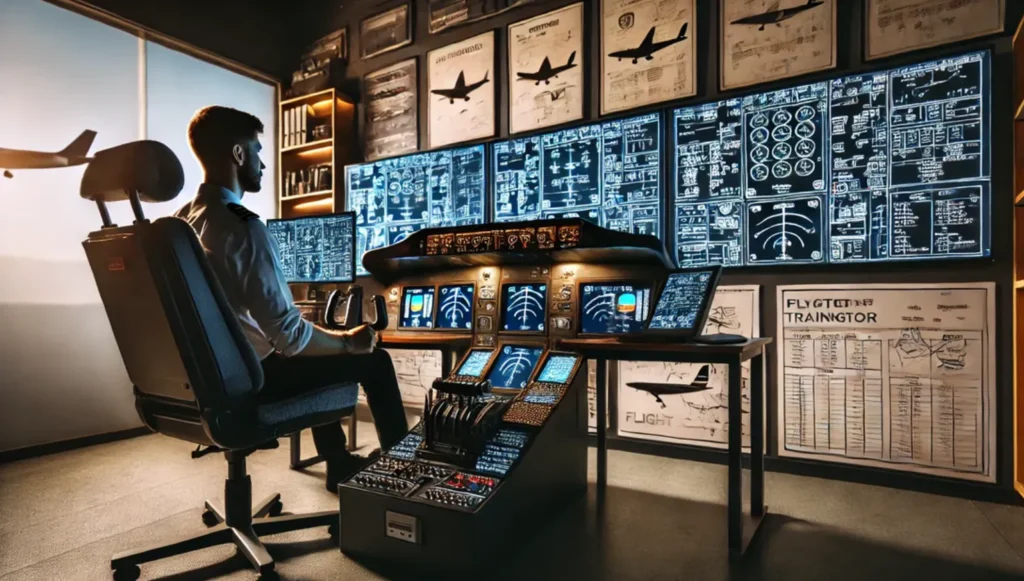Becoming a pilot has always been a dream associated with adventure, precision, and unparalleled experiences. However, before taking to the skies, a budding aviator must undergo rigorous training to ensure both their safety and the safety of their passengers. Flight simulators are a crucial element of this training, bridging the gap between theoretical knowledge and practical experience. This blog dives deep into how simulators prepare pilots for real-world flight challenges and why they are indispensable in modern aviation education.
Why Are Flight Simulators Essential?
Flight simulators serve as an invaluable tool for pilot training, offering a risk-free, cost-effective way to learn essential flying techniques. While traditional flight training is critical, simulators provide a controlled environment where aspiring pilots can practice, fail, and master skills without consequences. They offer a range of benefits:
- Safety: A simulator provides a safe space to practice emergency scenarios, such as engine failures or severe weather, that would be too risky to perform mid-flight.
- Cost-efficiency: Operating a real aircraft for training is expensive. Simulators significantly cut costs while offering realistic experiences.
- Repetition and Skill Development: Simulators allow for repeated practice of specific maneuvers or flight phases, something that is often impractical during actual flights.
- Real-time Feedback: Simulators provide detailed performance analytics, helping trainees and instructors identify weak spots that need improvement.
For individuals considering a future in aviation, often taking their first step at a flight school in Dallas or a similar institution, simulators have become a key part of modern curricula.
Simulating Real-Life Scenarios
One of the greatest strengths of a flight simulator is its ability to recreate real-world scenarios with remarkable accuracy. Here’s how simulators help aspiring pilots tackle a variety of situations:
1. Emergency Procedures
From engine failures to rapid decompression at altitude, simulators help pilots practice handling emergencies under pressure. These scenarios cultivate vital decision-making skills and ensure pilots stay calm in real-life situations.
2. Complex Weather Conditions
Severe turbulence, thunderstorms, or even icy runways—any weather challenge that makes flying treacherous can be simulated. Trainees get hands-on experience dealing with unpredictable weather, boosting their confidence when they encounter it mid-air.
3. Navigation and Instrument Mastery
Modern cockpits are high-tech hubs full of flight controls, navigation screens, and communication systems. Simulators familiarize students with these tools, enabling them to integrate technical expertise with practical application.
4. Airport Procedures
From navigating congested airspace to mastering perfect landings, simulators offer insights into airport operations, ensuring pilots are well-versed in takeoff, landing, and taxiing dynamics.
Benefits for Both Beginners and Experts
Flight simulators aren’t just for newcomers; they are equally beneficial for seasoned pilots. Here’s why they’re valuable for all experience levels:
- For Beginners: Simulators eliminate the intimidation factor. Instead, they introduce first-timers to the fundamentals of flying in a comfortable, risk-free setting.
- For Licenses and Certifications: Aspiring pilots training for specific licenses, such as private or commercial, rely on simulators to refine their skills and meet FAA requirements.
- For Experienced Pilots: Even seasoned professionals use simulators to practice new aircraft systems, hone advanced maneuvers, or stay certified through periodic checks.
This adaptability makes simulators a favorite tool across flight schools and aviation academies.
How Simulators Enhance the Flight School Experience
Flight schools across the globe have embraced simulators as the backbone of their training modules. More than just a confidence booster, simulators empower students to graduate fully equipped for real-world challenges.
If you’re considering joining a flight school in Dallas, you’ll likely spend hours in state-of-the-art flight simulators. Top-tier aviation academies invest heavily in this technology to provide a seamless blend of classroom theory and practical learning.
These institutions understand that hands-on simulator experience not only prepares future pilots for the cockpit but also showcases the rigors and rewards of their career choice.
The Evolution of Flight Simulators
From rudimentary designs to cutting-edge technology, simulators have come a long way. Modern simulators replicate sensory feedback, such as vibration, noise, and even the pull of gravity, ensuring a vivid flying experience. Equipped with full-motion platforms, these simulators mimic altitude, turbulence, and other dynamics to make pilots feel as if they’re genuinely in an aircraft.
Virtual reality (VR) is also finding its way into flight training, transforming how students visualize complex procedures. With VR headsets and augmented reality tools, pilots can explore diverse flight scenarios like never before.
A Community for Aspiring Aviators
Flight simulators do more than build skills—they foster a community of like-minded enthusiasts. Trainees working together in a simulator lab often develop camaraderie, supporting and encouraging each other through challenges. Such shared experiences are invaluable as they move forward in their aviation careers.
For those dreaming of becoming professional pilots or simply learning the art of flying for leisure, entering a flight school equipped with world-class simulators unlocks new opportunities. Training in such an environment isn’t just a preparation process—it’s an inspiring experience that paves the way to success.
Your First Step into the Skies
Whether you’re an aspiring aviator or a seasoned pilot looking to sharpen your skills, the role of simulators in training cannot be overstated. They provide a gateway to hands-on learning, helping you master flight principles without leaving the ground.
If your dream is to soar among the clouds, consider joining a flight school in Dallas, where premier simulators and expert instructors are ready to help you take off—literally and figuratively. With simulators leading the charge in aviation training, the path to the cockpit has never been more accessible, intuitive, and inspiring.
